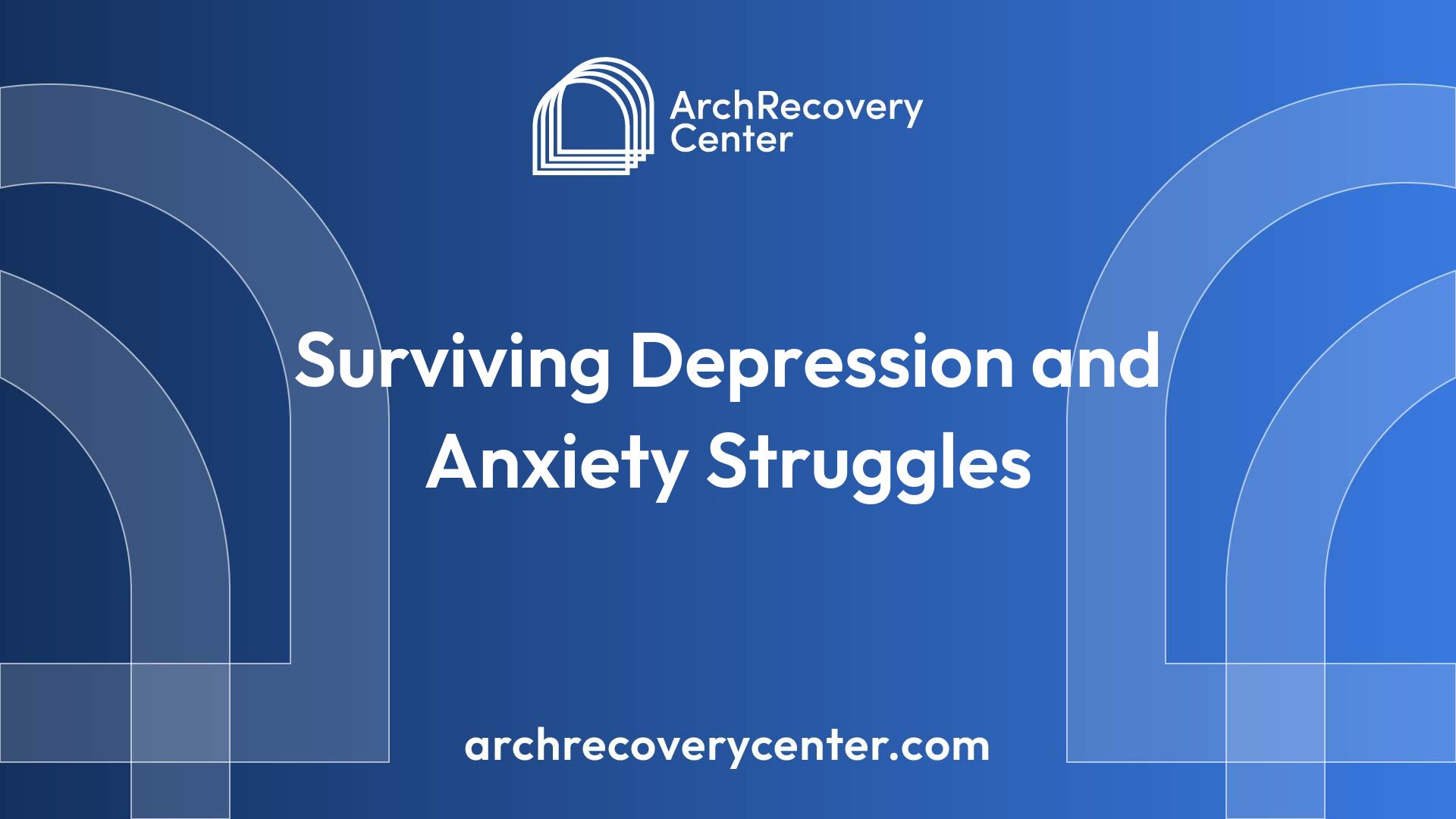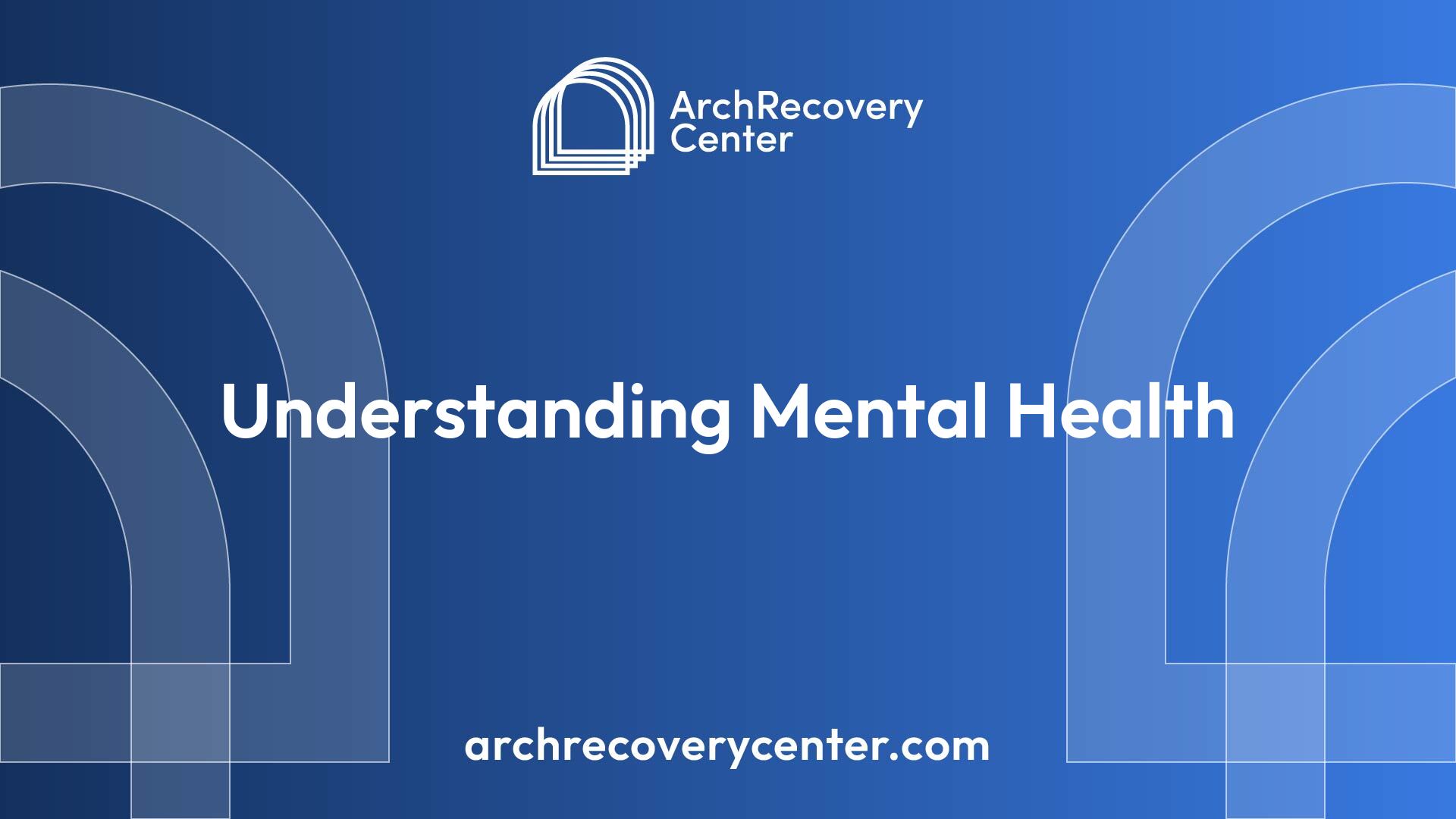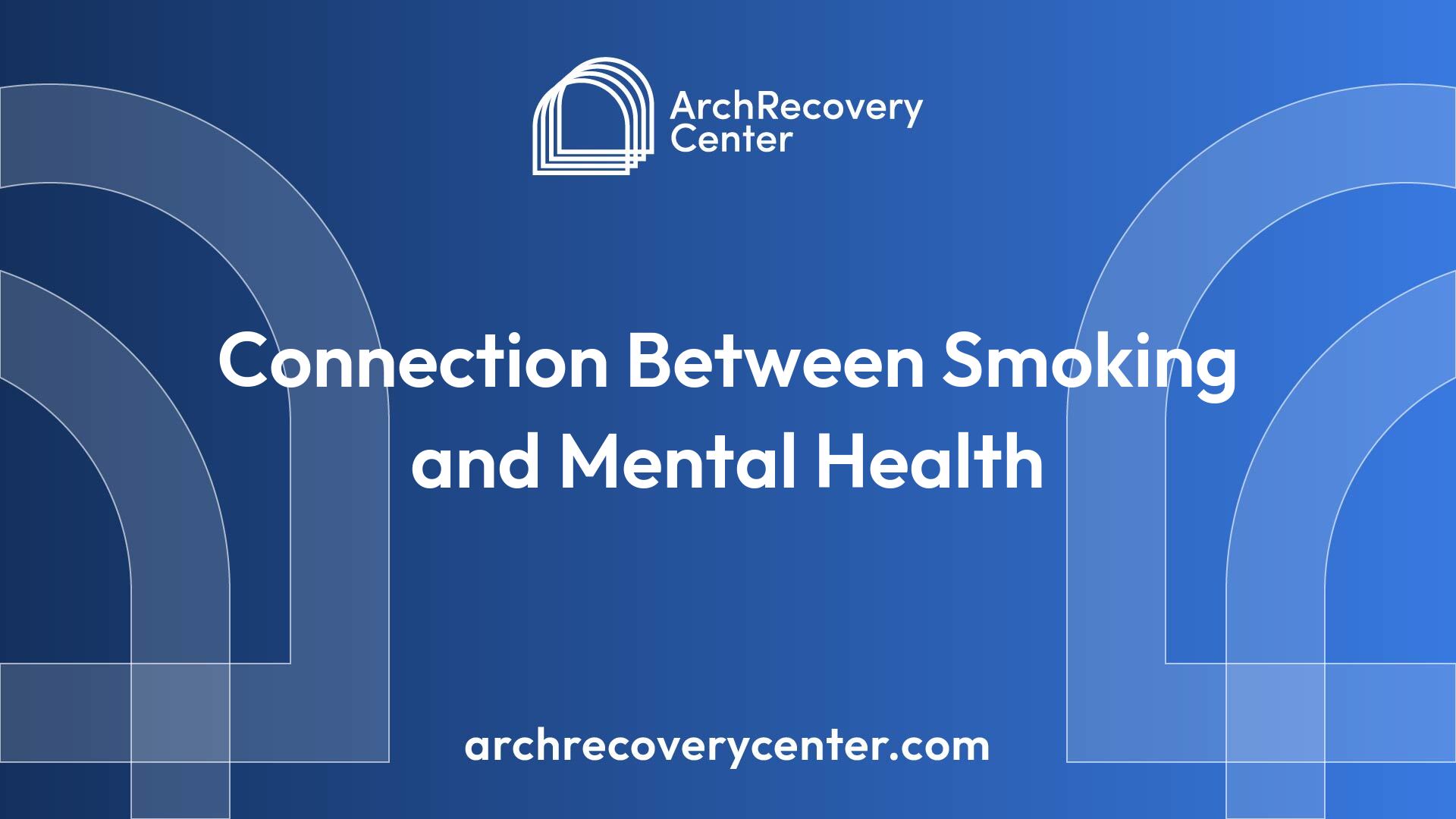Surviving Depression and Anxiety Struggles


Understanding Mental Health
Anxiety and Depression Overview
Anxiety and depression are two of the most prevalent mental health conditions affecting millions of people nationwide. Anxiety disorders are the most common form of mental illness in the United States, impacting around 40 million Americans, which is nearly 20% of the adult population. These disorders are characterized by intense and often uncontrollable feelings of anxiety, fear, worry, and panic that can adversely affect daily activities and persist over time.
Depression, on the other hand, is more than just a temporary feeling of sadness. It manifests when a low mood lasts for an extended period and disrupts normal functioning. It's estimated that about 1 in 6 adults will experience depression at some point in their lives, with approximately 16 million American adults affected each year. Symptoms of depression can include persistent sadness, loss of interest in activities, and difficulty concentrating, among others.
ConditionPrevalence (%)Annual Affected IndividualsAnxiety Disorders20%40 millionDepression7%16 million
Impact of Mental Health Conditions
The impact of anxiety and depression extends beyond emotional well-being; it significantly affects physical health and overall quality of life. Individuals struggling with both conditions often face a myriad of challenges that can hinder their ability to function effectively in daily life. Notably, nearly half of adults diagnosed with an anxiety disorder also have some form of depressive disorder [1].
The interconnectedness of these mental health issues can exacerbate symptoms, leading to a vicious cycle of emotional and physical turmoil. For instance, individuals may experience sleep disturbances, fatigue, and difficulty concentrating, all of which can prevent them from engaging in necessary daily activities. Maintaining an awareness of the symptoms and seeking appropriate help can mitigate the severe impacts associated with these mental health struggles. For more on the symptoms of severe depression, refer to our resource on the symptoms of severe depression.
Understanding the nature of these conditions is the first step in addressing them effectively. It is crucial for those affected to seek professional guidance and for friends and family to foster a supportive environment that encourages open discussions about mental health.

Connection Between Smoking and Mental Health
Understanding the link between smoking and mental health is essential for those who are struggling with depression and anxiety. Smoking habits can significantly affect an individual’s mental state, while the decision to quit can lead to improvements in mental well-being.
Smoking Habits and Mental Health
Research indicates that smoking is notably more prevalent among adults with mental health conditions, including depression and anxiety. Approximately 3 out of every 10 cigarettes smoked by adults in the United States are consumed by individuals facing these conditions. This statistic highlights a concerning trend where individuals dealing with mental health challenges may turn to smoking as a coping mechanism.
The reasons behind this correlation are not fully understood. Factors may include a desire for immediate relief, social influences, or habits developed over time. For instance, Rebecca M., a 57-year-old woman, shared her experience of smoking as a way to cope with depression. While quitting was initially challenging for her, she found that addressing her depression positively impacted her journey to quit smoking.
Quitting Smoking and Mental Health Improvement
Quitting smoking can yield significant benefits for mental health. Contrary to the belief that smoking alleviates symptoms, research shows that kicking the habit can lead to improved mental well-being in the long term. Addressing both smoking and mental health concerns, they do not have to interfere with each other's treatment. People who successfully quit smoking often report feeling better emotionally and cognitively.
For example, Rebecca M. discovered that while her path to quitting was initially difficult, it did not impede her professional care for depression. Rather, quitting smoking became a part of her recovery and overall health improvement strategy.
Additionally, quitting smoking can help mitigate physical health issues commonly linked to untreated depressive disorders, such as obesity, high blood pressure, and chronic pain. According to Advanced Psychiatry Associates, untreated depression can contribute to various health concerns that can further complicate overall well-being.
Smoking and Mental Health FindingsPercentageAdults with mental health conditions who smoke~30%Adults in the general population who smokeLower prevalence
By understanding the connection between smoking and mental health, individuals can make informed choices about their lifestyle and seek the necessary help. For those seeking to improve their mental health condition, addressing smoking habits should be a key consideration. It's advisable to explore and utilize various strategies for cessation and support systems that can facilitate the process. More information on resources can be found in our article about dealing with depression.
Treatment Options for Depression and Anxiety
When individuals are struggling with depression and anxiety, a variety of treatment strategies are available. These strategies can include therapy options, medications, and psychotherapy techniques tailored to meet their specific needs.
Therapy Options
Therapy is an essential component in the treatment of depression and anxiety. One of the most frequently used approaches is Cognitive Behavioral Therapy (CBT). This type of therapy focuses on breaking negative thought patterns, helping individuals feel better about themselves. According to NCBI, CBT has proven effectiveness for many experiencing depression.
Other therapeutic options include:
Determining the best therapeutic method can be done with the help of mental health professionals, ensuring individualized care.
Medication and Psychotherapy
Along with therapy, medication can play a critical role in managing depression and anxiety. Several types of medications are available, primarily antidepressants. These medications work by balancing chemicals in the brain that affect mood. Most people experience enhanced efficacy when medications are combined with psychological treatment.
Here's a quick overview of antidepressants:
TypeDescriptionOnset of EffectSSRIsSelective Serotonin Reuptake Inhibitors, often first-line treatment1-2 weeksSNRIsSerotonin-Norepinephrine Reuptake Inhibitors1-2 weeksTricyclicsOlder class of antidepressants, not commonly prescribed as first-line2-4 weeksMAOIsMonoamine Oxidase Inhibitors, more dietary restrictions needed2-4 weeks
While antidepressants can be effective, it is essential for healthcare providers to monitor patients for side effects, especially in children and young adults under age 25, as they may experience increased suicidal thoughts, particularly during the initial weeks of treatment or after dosage changes [3].
For those facing mild depression, therapy may be sufficient without medication, while more severe cases might require a combination of both strategies for the best outcome. Regardless of the approach taken, seeking care from healthcare professionals is crucial for accurate diagnosis and optimizing treatment plans.
Building a Support System
Importance of Support
Building and maintaining a strong support system is vital for individuals who are struggling with depression and anxiety. Support from friends, family, or mental health professionals can provide encouragement and help individuals engage in meaningful activities. This connection helps challenge negative thinking and fosters a more positive outlook on life.
Key Benefits of a Support System:
BenefitDescriptionEncouragementProvides motivation to keep moving forwardEngagementKeeps individuals involved in meaningful activitiesMental Health ImprovementEnhances coping mechanisms and reduces feelings of isolationChallenging Negative ThoughtsOffers alternative perspectives and solutions
Utilizing Peer Support Groups
Peer support groups offer an informal but effective approach to coping with mental health challenges. These groups are less structured than traditional therapy and focus primarily on creating a safe, confidential environment for members to connect and share experiences. Research indicates that sharing with individuals who have similar experiences can be incredibly beneficial for those dealing with depression and related disorders.
The Depression and Bipolar Support Alliance (DBSA) operates over 1,000 peer-run support groups across the country. These groups provide an opportunity for participants to share their experiences, coping strategies, and gain valuable insights. In instances where local groups are unavailable, individuals can explore online support groups, allowing for greater accessibility.
Benefits of Peer Support Groups:
BenefitDescriptionConnectionFosters a sense of belonging by sharing experiencesOpportunity for EngagementEncourages participation in group activities based on shared interestsPrivacy MaintenanceProvides social support while respecting personal privacyHealthy DistractionsEngaging in activities like hiking or yoga promotes stress relief and mental wellness (Highland Springs Clinic)
Incorporating a solid support system and engaging with peer support groups can significantly improve mental health. Balancing between engaging in conversations and participating in activities enhances coping mechanisms for those dealing with depression and anxiety, making a pronounced impact on their overall well-being.
Effects of Untreated Depression and Anxiety
Physical Health Impacts
Untreated depression and anxiety can lead to a range of physical health issues. For example, depression is significantly associated with obesity, chronic pain, and insomnia. Individuals struggling with depression tend to experience numerous physical symptoms that further complicate their overall health.
In the United States, approximately 41% of adults qualify as obese, a condition exacerbated by untreated depressive disorders. This obesity can lead to additional health risks, including high blood pressure, high blood sugar, and high cholesterol. Furthermore, insomnia manifests in approximately 75% of individuals with depression, impacting daily functioning and cognitive abilities [1].
Physical Health IssuePercentage AffectedObesity41% of adultsInsomnia75% of individuals with depression
Risks of Untreated Conditions
The risks associated with untreated depression and anxiety extend far beyond just physical ailments. The mental, emotional, and social ramifications can hinder daily functioning and lead to a deteriorating quality of life. Individuals may find it increasingly difficult to complete tasks and engage in social interactions. Depression can interfere with one's ability to think and behave clearly, resulting in challenges in maintaining relationships and employment [2].
Moreover, the development of chronic conditions can be exacerbated by untreated mental health issues, either by worsening existing problems or leading to the emergence of new ones [1]. The interconnectedness of mental and physical health underscores the critical need for effective treatment strategies for those who may be struggling with depression and anxiety. For insights into coping strategies, visit our section on dealing with depression.
Coping Strategies and Resources
Coping with mental health issues like depression and anxiety requires a multifaceted approach. Incorporating lifestyle changes and seeking professional help are two significant avenues that can support individuals who are struggling with depression and anxiety.
Lifestyle Changes
Implementing specific lifestyle adjustments can play a vital role in managing symptoms of depression and anxiety. Below are key areas that can contribute to improvement:
Lifestyle ChangeDescriptionRegular ExercisePhysical activity can boost endorphin levels and improve mood. Aim for at least 30 minutes of moderate exercise most days of the week.Balanced DietEating a nutritious diet rich in fruits, vegetables, whole grains, and lean proteins can positively impact mental health.Adequate SleepPrioritizing sleep hygiene helps to restore energy levels and improve overall well-being. Aim for 7-9 hours per night.Mindfulness and MeditationPracticing mindfulness can help reduce stress and enhance emotional regulation. Techniques include deep breathing and guided imagery.Social ActivitiesEngaging in social interactions can alleviate feelings of isolation and promote a sense of connection.
Making these changes can serve as a complementary option alongside professional treatments. Many helpful treatments for depression are available, such as therapy and medications which can help reduce symptoms over time [2].
Seeking Professional Help
Obtaining professional help is crucial for anyone suffering from depression or anxiety. Numerous treatment options exist, including medication and psychotherapy. Psychotherapy, or talk therapy, involves discussing one's issues with a mental health expert and can take various forms. Cognitive behavioral therapy (CBT) and interpersonal therapy are examples of effective therapeutic approaches [3].
Medications such as antidepressants can also alleviate symptoms for many individuals. It is essential to consult with healthcare professionals, such as psychiatrists or psychologists, to tailor treatments to individual needs.
Effective treatments for depression include lifestyle modifications, medications, and therapy, and finding the right combination takes time and might vary for each individual. It's important to remember that depression isn't caused solely by external factors; understanding that it can be treated is vital for recovery [5].
Utilizing these strategies can help individuals manage their struggles with mental health and take steps toward improving their overall well-being.
References
[2]:
[3]:
[4]:
[5]:
Recent articles

The Dangers of Fentanyl and the Role of Detox in Saving Lives
April 23, 2025
Confronting the Fentanyl Crisis: From Risks to Recovery

Why Residential Treatment is Ideal for Individuals with Chronic Relapse
April 23, 2025
Breaking the Cycle: The Power of Residential Treatment in Chronic Relapse Recovery

The Role of Peer Support in Addiction Recovery
April 23, 2025
Harnessing Peer Power in the Fight Against Addiction

How to Overcome Procrastination During Sobriety
April 23, 2025
Conquering Delay: Strategies for Staying on Track in Sobriety

How to Handle Conflict in Recovery Environments
April 23, 2025
Building Resilience: Mastering Conflict Management in Recovery Settings

How to Handle Setbacks in Your Recovery Journey After Detox
April 23, 2025
Navigating the Challenges of Sobriety: Overcoming Obstacles Post-Detox

How Prescription Drug Addiction Impacts Relationships and How to Heal
April 23, 2025
Breaking the Silence: Navigating the Complexities of Prescription Drug Addiction in Relationships

Is Your Parent in Need of a Prescription Drug Rehab?
April 22, 2025
Uncovering the Hidden Signs of Prescription Drug Dependency in Seniors

What Does Porn Addiction Look Like
April 22, 2025
Understanding the Hidden Struggles of Porn Addiction

The Role of Empathy and Compassion in Supporting Others' Sobriety
April 22, 2025
Fostering Connection and Healing in Addiction Recovery

Healing Addiction with Emdr Therapy
April 22, 2025
Trauma-Informed Approaches Transform Addiction Recovery

Types of Alcoholics
April 22, 2025
Decoding the Diversity of Alcohol Dependence

How Residential Treatment Supports Individuals with Severe Addiction
April 22, 2025
Comprehensive Support Systems for Severe Addiction Recovery

What Is Codependency?
April 22, 2025
Unraveling the Complex Web of Dependence and Emotional Entanglement

How to Celebrate Milestones in Sobriety
April 22, 2025
Marking the Journey: Celebrating Your Sobriety Milestones

How Residential Treatment Can Help You Overcome the Shame of Addiction
April 22, 2025
Breaking Barriers: The Healing Power of Residential Addiction Treatment

How to Overcome Shame and Guilt in Recovery
April 22, 2025
Breaking the Chains of Emotional Burdens in Recovery

The Importance of Sleep During Detox and Residential Treatment
April 22, 2025
Prioritizing Rest for Successful Recovery

How to Stay Sober and Avoid Relapse After Residential Treatment
April 22, 2025
Building a Solid Foundation for Long-Term Sobriety

How Residential Treatment Supports Long-Term Sobriety
April 22, 2025
Understanding the Power of Residential Rehab in Sustaining Sobriety

Why Detoxing Alone Can Be Dangerous
April 22, 2025
The Hidden Dangers in Self-Driven Recovery Efforts

The Link Between Detox and Spiritual Healing
April 22, 2025
Exploring the Union of Detoxification and Spiritual Renewal

How to Manage Financial Stress After Detox
April 22, 2025
Navigating Financial Recovery Post-Detox

How to Balance Independence and Support in Residential Treatment
April 22, 2025
Striking the Right Balance: Independence and Support in Residential Treatment

How Residential Treatment Helps Prevent Relapse
April 22, 2025
Exploring the Role of Residential Treatment in Sustaining Recovery

How to Support Children While Going Through Detox
April 22, 2025
Helping Children Cope During Parental Detox

How to Establish Trust with Therapists in Detox Programs
April 22, 2025
Building Trust with Therapists in Detox: A Pathway to Successful Recovery

The Role of Exercise in Detox and Residential Treatment
April 22, 2025
Harnessing Physical Activity for Effective Addiction Recovery

How to Manage Guilt and Shame in Early Recovery
April 22, 2025
Navigating Emotional Turbulence: Guilt and Shame in Recovery

The Role of Counseling During Detoxification
April 22, 2025
Exploring Counseling's Critical Role in Detox Recovery

